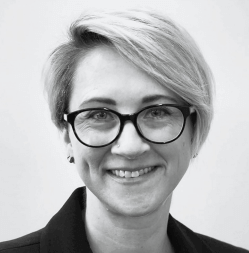Michael Phillips-Anderson, P.h.D associate professor of Communication and Marina Vujnovic, P.h.D., A.P.R and professor of Journalism presented their joint research at the Rhetoric in Society #9 Conference, held Jun. 18–21, 2025, at the University of Zagreb in Croatia. The international event, themed “Rhetoric in the Digital Age,” brought scholars from around the world to explore how communication, persuasion, and public discourse are evolving in today’s increasingly digital environment.
Their presentation, titled, “Sympathy is an Out-of-Network Benefit: An Examination of Digital Rhetoric and Dark Humor Following the Death of UnitedHealthcare’s CEO,” examined how online users used humor, irony, and metaphor to react to the December 2024 murder of Brian Thompson, CEO of UnitedHealthcare. “We were interested in how people used metaphorical language—especially healthcare metaphors—to express their feelings about the tragedy,” Phillips-Anderson said. “One of the tweets we found said, ‘I’d feel bad for the guy who was killed, but sympathy isn’t an out-of-network benefit.’ Another said, ‘Your murder doesn’t meet my deductible.’ People were channeling their frustration with the healthcare system through the language they used to talk about this event.”
The collaboration began when Phillips-Anderson stopped by Vujnovic’s office with an idea. He said, “There’s a rhetoric conference in your hometown next summer—we should propose something,” Vujnovic said. “Of course, I got excited, and we started brainstorming. Around that same time, the murder of Brian Thompson happened, and it became the focus of our project.”
Although the two approach media from different perspectives Phillips-Anderson as a rhetorician who studies humor and public discourse, and Vujnovic as a scholar of journalism and media systems and their expertise complemented each other. “We’ve written and published together before,” Phillips-Anderson said. “Even though she’s more into journalism and PR and I’m more into rhetoric, our interests overlap nicely.”
Their research also builds on their earlier co-authored work, “Watchdogs and Fact Checkers: Contemporary Journalism and Political Influence,” which appeared in Dirty Deals: Encyclopedia of Lobbying, Political Influence, and Corruption (2014).
For Vujnovic, the trip was both professionally and personally meaningful. “It was very special to go back home in a professional capacity—and even more special to have Dr. Phillips-Anderson there with me,” she said. “He’s the only colleague from Monmouth who’s ever visited Croatia with me. It felt a bit surreal, in the best way, to see Monmouth University written on our conference tags while not being on campus.”
Although Vujnovic broke her foot shortly before the trip and couldn’t show him around as much as she hoped, their presentation was a success. “I really enjoyed what we had to say and all the feedback we received,” she said. “It was also great to connect with other faculty from around the world and share ideas.”
Dr. Deanna Shoemaker, Chair of the Department of Communication said, “Drs. Phillips-Anderson and Vujnovic bring Monmouth University to the global stage with their research; our students also greatly benefit from their rigorous commitment to scholarship.”
For Phillips-Anderson, the experience had some unexpected highlights being interviewed on Croatian television. “I was super nervous,” he admitted with a laugh. “I’ve been on NPR before, but it’s still surreal to see yourself on TV in another language. Under my name, the caption said something like ‘Professor at the University of New Jersey.’ Not quite right—but close enough!”
Both professors said the conference left a lasting impression both academically and personally. For Dr. Phillips-Anderson, the event highlighted just how quickly the field is evolving. “The conference focused on how rhetoric operates in the digital age,” he said. “Even books from 2019 already feel outdated because things are changing so fast. I’m updating my materials to reflect that—and exploring how we can use language not just to divide, but to connect.”
For Dr. Vujnovic, the experience underscored the power of collaboration. “Collaboration is such an important part of what we do,” she said. “We each could have done this project on our own, but doing it together made it so much richer. That’s something I always try to bring back to my students and colleagues—good collaborations create better, more meaningful work.

